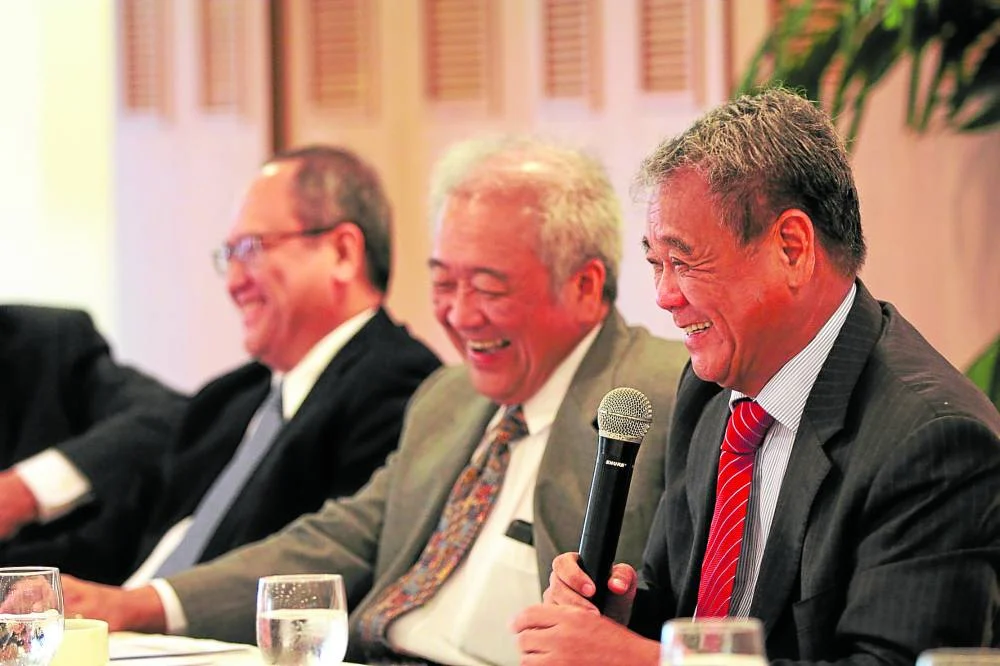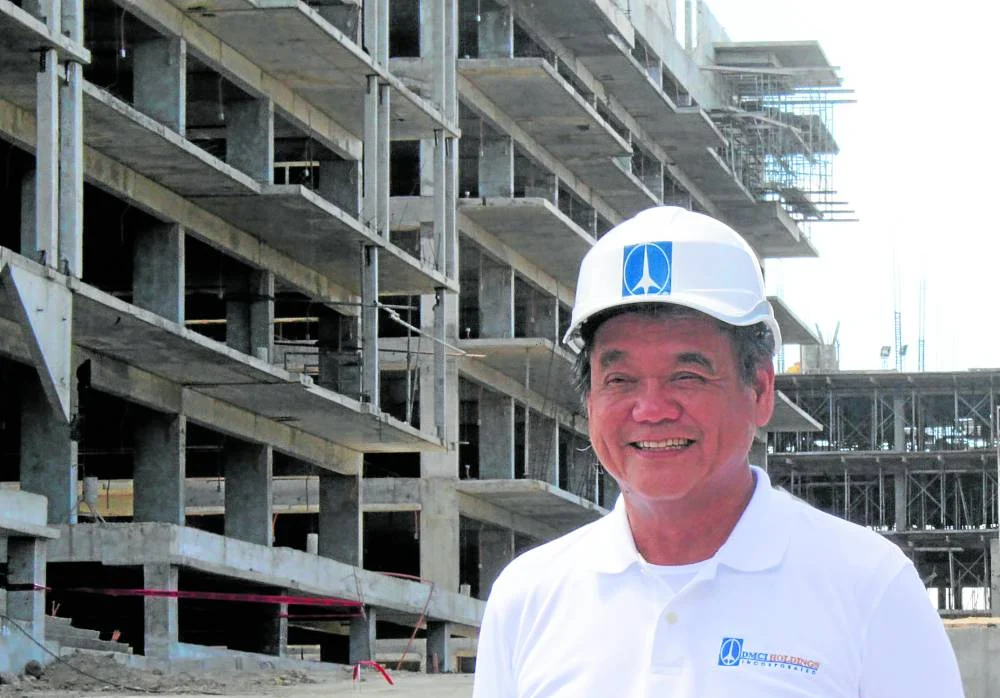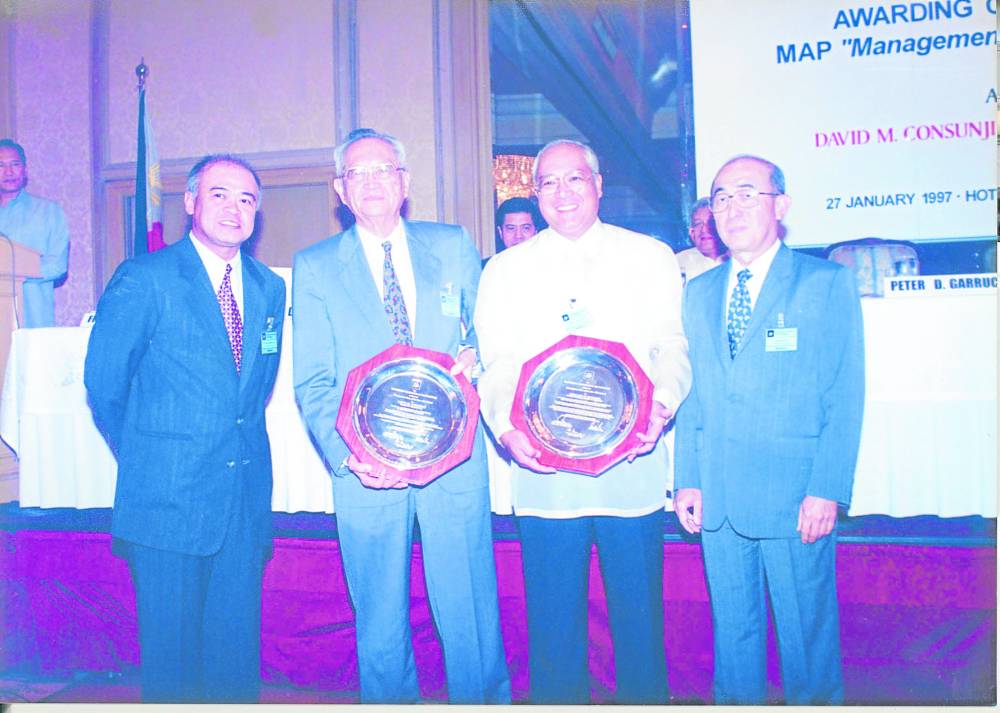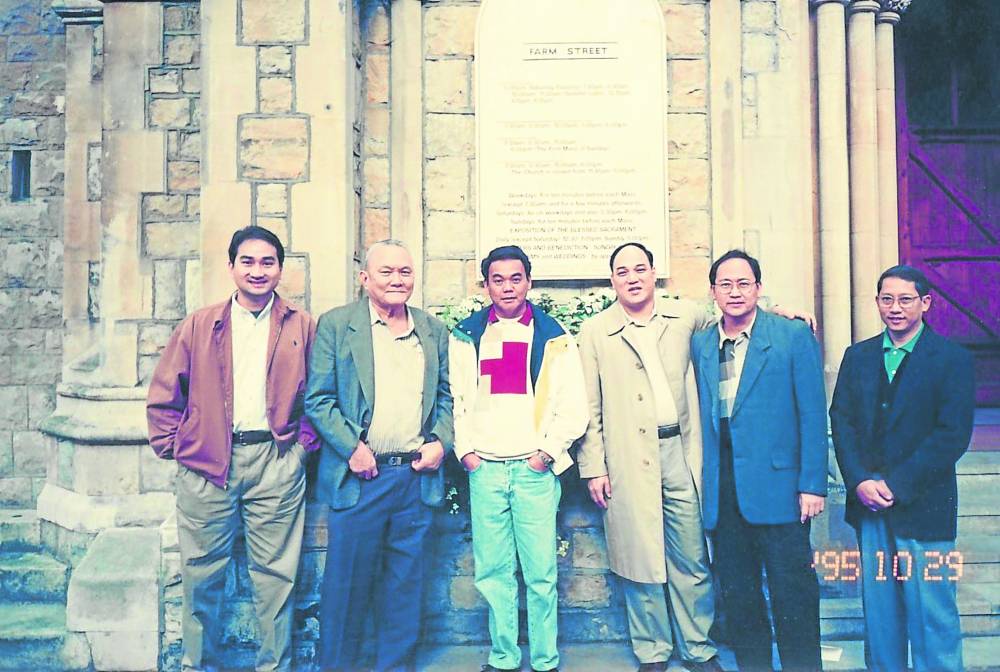By: Miguel R. Camus – Reporter / @miguelrcamusINQ

This master of business administration (MBA) school dropout acquired his first company at the age of 27 before leading the transformation of the family conglomerate, DMCI Holdings Inc., into the energy, coal mining, property and construction powerhouse that it is today.
At the age of 73, Isidro “Sid” Consunji—the Management Association of the Philippines’ (MAP) Management Man of the Year” for 2022—is as busy as ever as the chair, president and CEO of DMCI. The prestigious MAP management award, which he will officially receive on Nov. 28 , is flattering and unexpected, but also somehow stressful.
“Writing the speech is the hardest. There are so many things you want to say but the challenge is how to distill your thoughts,” he says in a recent interview with Inquirer editors and reporters.
An intuitive business maverick with a rebellious streak that started from his youth, Consunji makes it clear he won’t be sharing assorted tidbits of management wisdom.
After all, the civil engineering graduate from the University of the Philippines (UP) prefers a more pragmatic approach based on the principles of ‘learning by doing’ that he hopes to impart to future generations of family and professional managers. Through his anecdotes, peppered with irreverence and humor, one better understands the mix of brilliance, calculated risk-taking, good timing and mystifying luck that defined his decades of running the P130-billion family-led empire.

The apple that fell far from the tree
Consunji’s tone turns more reflective when discussing his late father, DMCI founder and construction pioneer David Consunji, who was also named MAP Management Man of the Year in 1996.
While father and son share the same MAP recognition, their management styles were very different. Consunji says his prim- and-proper dad was more focused on the technical side of the business while he is more interested on the commercial aspects, from costs, cash flow and ultimately, profitability.
Even then, he acknowledges the sacrifices of his parents and the path his father had cleared for his future success.
“The most difficult project my father ever had was bringing me up,” says Consunji, the eldest son among eight siblings.
His rise to the top was not a linear journey.
Consunji spent high school in a traditional boarding school in Australia, before moving to Ateneo De Manila University, then exclusively for boys. He schemed to transfer to coed UP after seeing the university oval swarming with pretty girls in miniskirts. That was how he became a civil engineer as his father let him transfer to UP because he had sworn he was interested in civil engineering.
But he didn’t take college seriously at first, prompting his exasperated father to suggest: start working instead.
Consunji took a minimum-wage job that paid P6 a day in the motorpool division of the business. Salaries were paid on Saturdays, but Consunij was already penniless by Tuesday evenings as he had spent his earnings on cigarette and alcohol by then.
“I thought life was hard without an education, so I went back to school,” he recalls.
He completed his studies in civil engineering and passed the board exam in the early 1970s.
It was during this period that an ex-girlfriend convinced him to go to MBA school, lest his career would plateau early.
He enrolled at the Asian Institute of Management (AIM), one of the top business schools in the Philippines. He was a Dean’s lister in the first semester, but started getting bored by the second year.
“I asked around, what’s the minimum to pass? In AIM, you’re allowed to flunk three subjects. So I chose three subjects to fail,” Consunji recalls. But he ended up failing five due to unforeseen circumstances involving extra classes.
One of his mentors at AIM, veteran business professional Delfin Lazaro, explained that part of the reason he had flunked was his cavalier attitude toward their classes.
While he learned much from AIM, he admits that his ultimate mistake was miscalculating the classes he had intended to flunk.
“I had no room for contingency,” he says.
The irony isn’t lost on Consunji that he is now a board trustee of AIM, alongside prominent personalities such as Aboitiz Equity Ventures director Erramon Aboitiz, Convergys Philippines chair Marife Zamora and Philippine Daily Inquirer CEO Alexandra Prieto-Romualdez.

Bucking the downtrend
Despite that bumpy start, Consunji today holds an enviable position even among the small circle of Filipino dollar-billionaire families.
DMCI is that rare stock market darling this 2022 as the turmoil in the global energy markets pays off, thanks to investments in mining, commodities and power, mainly through subsidiary Semirara Mining and Power Corp.
The net income of the conglomerate during the first nine months of the year doubled to P27.6 billion, breaking a record that goes back nearly a decade, while profits at Semirara surged more than three times. That windfall is being showered to investors through dividends equivalent to over 90 percent of the past year’s earnings—well above the company’s standard payout of at least 25 percent.
During their board deliberations, Consunji heeded the advice of an independent director, who said it was better to declare dividends amid the uncertain economic climate.
“The theory of our director is if you don’t have use for your money at the moment, just give it to our stockholders. Anyway, if you need the money, you can always go [back to the market] or borrow,” he explains.
Consunji closed several successful multibillion-peso deals throughout his tenure as DMCI’s chief.
One of his most memorable transactions occurred a few years after school.
While winding down the family’s lumber business in Zamboanga, an opportunity emerged through another distressed logging company operating in Davao.
The logging firm was headed for default amid a crippling dispute with government contractors on the use of a road that needed critical repairs.
The owner of the firm was also desperate since the loan terms placed his personal assets and home at risk of foreclosure.
Consunji, who did not have cash to invest, came up with a novel solution.
He convinced the owner to allow the infusion of heavy equipment from their old logging company as equity in exchange for a 60 percent stake in the distressed firm, plus an option to buy the remaining 40 percent within three years.
He also promised to free the latter of its loan obligations.
“I agreed to do this on one condition, that I run the company. I was 27 years old,” Consunji says.
Over an evening of drinks, he solved what to his mind was a simple problem with the contractors.
“What they were doing is they were destroying the whole road so no one could use it. I said, why not work on one lane and allow our trucks to use the other one? And after that, you can work on the other side and we use the repaired lane. They agreed,” Consunji says. In three months, the company’s lumber production grew swiftly from 700 cubic meters a month to 7,000 cubic meters.
“It was a turnaround. [To make the] long story short, after only three months, I exercised the option to get the balance of the 40 percent,” he says.
Never one to lose his humor, Consunji insisted they sign the final contract on April Fool’s Day of 1976.
“He asked me why did I choose April 1. I told him it was because I don’t know who is the fool here, you or me,” he quips.

The rock bottom
Consunji reveals that his lowest point in business was during the 1997 Asian financial crisis when cash flow became a problem.
DMCI was caught unprepared after spending proceeds from its initial public offering (IPO) in 1995 to snap up land and other distressed companies, including the coal assets of what would become Semirara Mining and Power.
“The important thing during the Asian crisis was liquidity, even more than solvency,” he says. “All the credit was cut down. We had to generate liquidity.”
They decided to expand DMCI Homes, whose property assets at the time were in less prime locations.
“We had to create a unique selling proposition so people will buy,” says Consunji, who was working with his cousin Herbert Consunji, the company’s chief finance officer.
It was during this period that DMCI Homes sold affordable residential projects with swimming pools and security guards. Their condominium units were also upgraded with granite countertops and more spacious sinks after receiving feedback from their customers, helping turn DMCI Homes into a huge success.
“We soon realized, sales would go up as we added features,” Consunji says. “Our intention is always to leave money on the table. If people know they get the best value for money, it’s not a hard sell.”
Today, DMCI Homes is the company’s second largest earnings contributor after Semirara.
Earnings year-to-date climbed 19 percent to P3.85 billion as of September, eclipsing contributions at the flagship construction arm D.M. Consunji, which was once their main cash cow.
“When we did the IPO, construction was 96 percent [of earnings]. Today, it’s about 4 percent,” Consunji says.
Utility gambit
One of DMCI’s biggest strategic pivots came in 2005, paving the way for the successful rehabilitation of Maynilad Water Services Inc.
DMCI and Pangilinan-led Metro Pacific Investments Corp. joined forces to bid for the company after the Lopez family was unable to turn the struggling Metro Manila concessionaire around.
It was a viable alliance that combined their engineering expertise with Pangilinan’s strong financial management background.
But a last-minute hitch emerged as the qualification deadline neared: DMCI was still short on financing its share 24 hours before the bid.
With his cousin Herbert, Consunji quickly set a meeting and convinced the late Reynaldo David, then president of Development Bank of the Philippines, to support their bid, which already had the backing of Sy-led BDO Unibank and US bank JP Morgan.
Their team, along with local and international bankers, pulled an all-nighter to finalize their bid submission for Maynilad.
The auction culminated in a final showdown between DMCI-Metro Pacific and the Ayala Group’s Manila Water Co., which was the other major concessionaire in Metro Manila.
Their main dilemma at the time was deciding if their final bid amount would be enough to beat the country’s oldest conglomerate.
Consunji pushed for a more conservative figure, saying it was all the money they had anyway and it was likely the Ayala Group would underestimate them and bid less aggressively.
He recounts, “I said [to the consortium], I think they will bid $450 million. That was our assessment. Manny [Pangilinan] said, okay let’s bid $500 million.”
Pangilinan made further calculations on a white board, coming up with a final amount $503.888 million, which he considered a lucky number.
As Consunji had predicted, DMCI-Metro Pacific edged out the Ayala Group by about $50 million and was declared the winner after the bids were opened on Dec. 8, 2006.
Former Manila Water chair Fernando Zobel De Ayala was among the first to congratulate him from the rival concessionaire. “In less than an hour, he sent me a text saying congratulations, you won fair and square,” he says.
DMCI continues to hold a 25-percent stake in Maynilad following the entry of Japan’s Marubeni Corp. in 2013.
Succession plans
“In our story, a lot of it is crisis, a lot of it is luck,” Consunji says, while reflecting on his career.
The topic turns to succession and Consunji says he is not prepared to make any announcement yet.
But he plans to cede more responsibilities in the coming years to future leaders, including professional managers and family members, among whom there are several viable candidates.
“I want to be semi-retired. If I don’t [retire], people will not grow,” he says.
While the next generation will bring different management styles as he once did when he took the helm, Consunji hopes that the group’s core philosophy and business traditions will endure.
“I think we stand for delivering what you promise, whether it’s homes, Semirara or construction. That’s the intent all the time. We keep things simple,” he says. The other key lesson came from his father, who emphasized the importance of working as a team.
“My father told [me and my siblings]: none of you are exceptional. You have to work together, otherwise you will fall,” Consunji says. “One important thing is that ordinary people are capable of extraordinary things.”
Read more: https://business.inquirer.net/374926/sid-consunji-just-an-ordinary-guy-with-extraordinary-tasks
